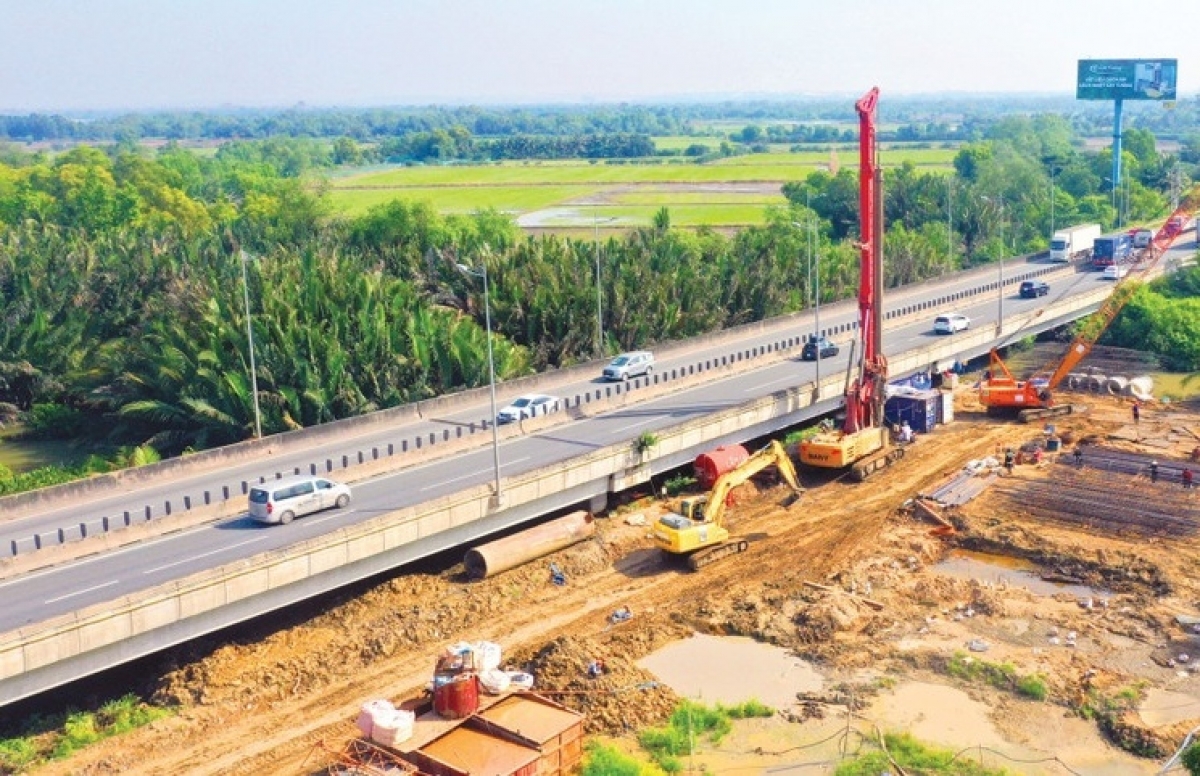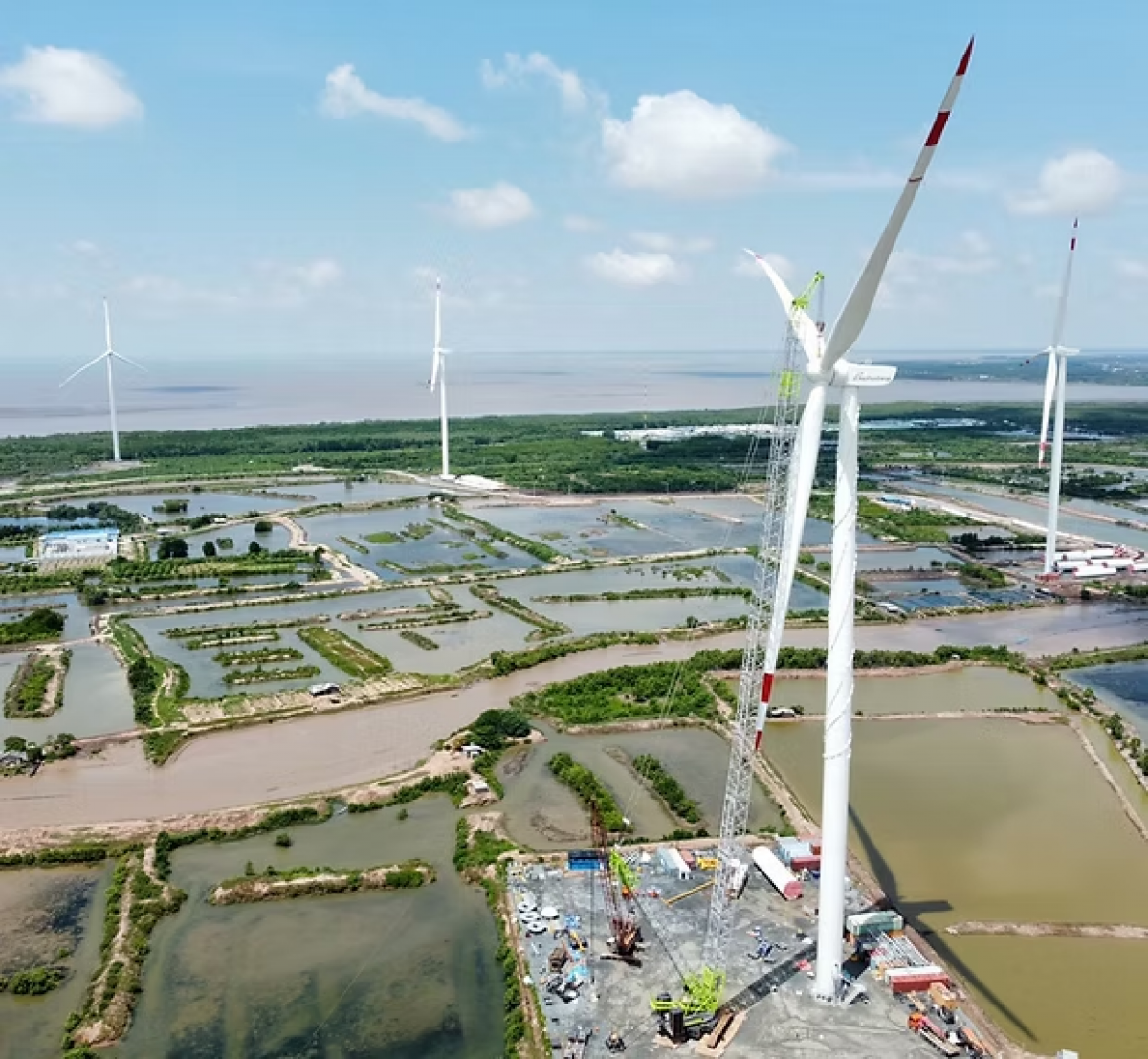INTERNATIONAL INVESTMENT
AND PORTAL
At a dialogue between the prime minister and investors held last week at the Ho Chi Minh City Economic Forum, Pham Duc Long, Deputy Minister of Information and Communications, said that data centres and cloud computing are included in the revised Telecoms Law.
 Vietnam now boasts dozens of official data centres, mostly in Hanoi and Ho Chi Minh City
Vietnam now boasts dozens of official data centres, mostly in Hanoi and Ho Chi Minh City
“The reason why those fields were added into the revised law is that we need to strengthen the management of these fields and build policies to promote development, as well as attract investors to large data centres in Vietnam when the demand is rocketing, as we are in the hot way of implementing the digital transformation strategy nationwide,” said Long.
In this amendment, the Ministry of Information and Communications, the agency drafting the revised law, said that foreign investors will not be limited in the capital contribution ratio when putting money into the construction of data centres and that they will not have to apply for permission, but only must register for funding.
“After that, the project’s operation will follow a post-audit mechanism by relevant departments to ensure compliance with technical standards and green standards of current laws,” said Long. “Vietnam has built centres with domestic investors, but we still need policies to engage large foreign ones.”
The Telecoms Law took effect in July, except for certain regulations on management of data centre services, cloud computing services, and basic telecommunications services on the internet, which will become effective from 2025.
Vietnam’s largest cities are among the most affordable for land and power costs to operate data centres, with the combined market size of Hanoi and Ho Chi Minh City at 48MW, according to a September report by Cushman & Wakefield in its fifth-annual Global Data Centre Market Comparison Ranking, showing incredible growth for the industry across all global regions, in both emerging and established markets.
Cushman & Wakefield rates Vietnam as an emerging market for data centres in the Asia-Pacific region. Trang Bui, country head of Cushman & Wakefield Vietnam, said that the country remains as a new frontier for data centres in Asia-Pacific.
“It is poised for steady expansion as its neighbouring ASEAN markets witness growth, especially around AI, and as regional enterprises look further into Southeast Asia to combat the impact of rising costs in their local markets. Ho Chi Minh currently accounts for 50 per cent of operational capacity in Vietnam,” Bui said.
“However, the landscape is poised to change since the Vietnamese government announced the revised Telecoms Law that eases processes around data localisation and cancelled foreign ownership caps for data and cloud providers to allow for foreign ownership in the country,” she added.
These exemptions from the usual market entry constraints in Vietnam could entice more international operators to enter the market. Meanwhile, domestic players are proactive in this game. Viettel have announced that they have partnered with Singtel to develop a submarine cable connecting Vietnam to Singapore and Southeast neighbours, Cambodia, Thailand, and Malaysia.
The national telco is also planning for at least two Vietnamese-owned cables operational by 2030, prioritising shorter routes to other Asia digital hubs to accompany the government in building and developing digital infrastructure in Vietnam.
The sector as a whole still encounters its share of challenges, however, with the availability of power constricted in many major markets. As a result, data centre operators have increasingly turned to either venturing into further outlying submarkets outside traditional data centre clusters or expanding into secondary and tertiary markets around the world. Markets that only a few years ago were not present in any industry discussions have risen to the forefront and are seeing hundreds of MW in their pipelines.
Jacob Albers, head of Alternative Insights at Cushman & Wakefield, commented that despite commercial real estate and the overall economy facing mounting challenges, data centres have remained in strong growth mode as robust cloud demand and the initial surge of interest in AI deployments maintained confidence in the sector.
“A typical data centre requires space, proximity to city centres for high efficiency, access to robust power supply and stable grid networks, and effective cooling systems to maintain the servers at optimal temperatures. Based on these criteria, demand for data centres tends to be concentrated in big cities with large populations,” he said.
In Vietnam alone, according to Savills, as of Q1, Vietnam had 33 data centres operated by 48 service providers. The main data centre clusters are concentrated in Hanoi and Ho Chi Minh City, with 16 and 13 facilities in operation, respectively. Geographically, the central region accounts for only 6 per cent.
According to Research and Markets, Vietnam’s data centre market generated revenue of $685 million in 2023 and is expected to grow to $1.44 billion by 2029, at a compound annual growth rate of 13.1 per cent.
 More investments planned for Vietnam's hyperscale data centres
More investments planned for Vietnam's hyperscale data centres
The market for data centers is predicted to experience a surge in Vietnam in the coming years, with major investments from global players to capitalise on the booming demand for AI products and services.
 Google to invest 1 billion USD in developing data centre in Thailand
Google to invest 1 billion USD in developing data centre in Thailand
Alphabet Inc's Google announced on September 30 that it will invest 1 billion USD in Thailand to build a data centre and cloud region to meet growing cloud demand and support artificial intelligence (AI) adoption in Southeast Asia.
 Vietnam primed to make use of data centre potential
Vietnam primed to make use of data centre potential
With the lowest average cost of construction and land prices in the region for data centres, along with a prime geographical location, Vietnam is an emerging market for such ventures.


















